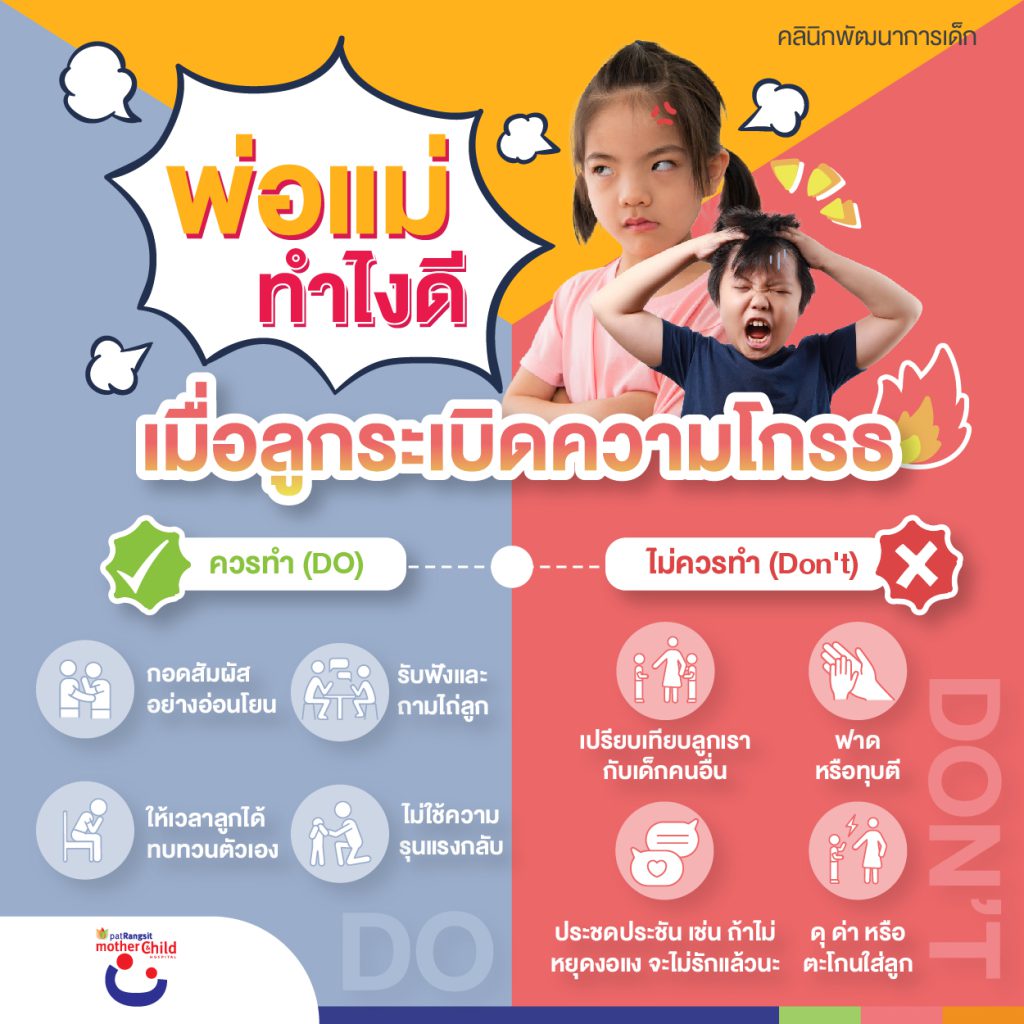
Explosions of Anger Problems that Parents Must Address Urgently by Dr. Chonnipa Butwong, Specialist in Child and Adolescent Psychiatry at PatRangsit Hospital.
This article discusses the disruptive behavior of children, what causes irritable and easily angered children, how to take care of them, and why we should pay attention and understand them. Many disruptive behaviors often manifest as anger and frustration, which are primary symptoms of Oppositional Defiant Disorder and Conduct Disorder. However, children with other psychiatric disorders are also at risk of exhibiting disruptive, angry, and aggressive behaviors.
Research studies have found that the prevalence of disruptive behaviors ranges from 14% to 35%. Particularly in children with ADHD, the prevalence can increase to 14% to 62%, and in children with anxiety, it ranges from 9% to 45%.
However, anger is a natural part of emotions, although it involves increased physiological arousal. Anger often leads to thoughts of blame towards oneself or others, as it arises from frustration or provocation. Anger can last from minutes to hours and ranges from mild anger to extreme anger. Crying, stomping, pushing, hitting, and kicking are common expressions of anger in children aged 1-4 years, occurring 5-9 times a week on average, with durations of 5-10 minutes. However, the intensity and frequency of anger tend to decrease as children grow and age.
Uncontrolled outbursts of anger are problems that need to be addressed to help children develop emotional control skills and cope with anger and frustration effectively.
Methods that can be used to manage anger include:
Allowing yourself to articulate your feelings honestly can help turn your anger into understanding. Self-awareness will be coupled with self-control. Dealing with anger is not easy, and anger control is something that must be practiced gradually and continuously. It may not be possible to completely manage all feelings of anger immediately, but it is important to learn to control your anger so that it doesn't overwhelm you.


บทความโดย
พญ.ชนม์นิภา บุตรวงษ์
เว็บไซต์นี้มีการใช้งานคุกกี้ เพื่อเพิ่มประสิทธิภาพและประสบการณ์ที่ดีในการใช้งานเว็บไซต์ของท่าน